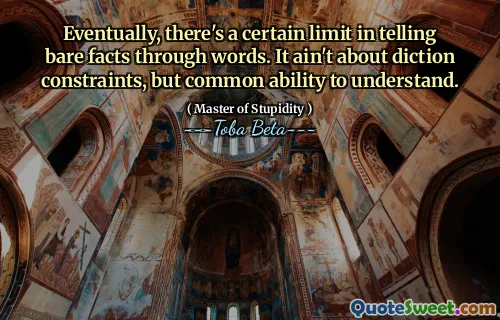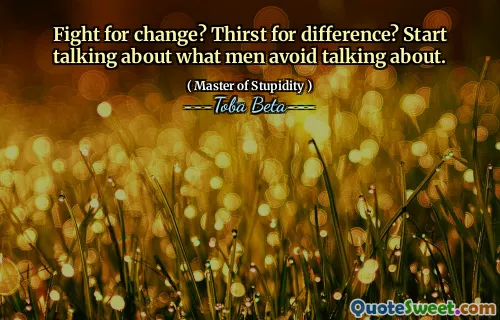
You say that I'm nobody, and you agree that nobody's perfect. Based on logic, I'm a perfect person according to your opinion.
This quote offers a compelling exploration of perceptions, judgments, and the relativity of perfection. At first glance, it seems to be a witty remark about how society often labels individuals as insignificant or 'nobodies,' yet simultaneously acknowledges the universal imperfection of all humans. The speaker cleverly points out that if everyone is imperfect—the literal truth—then by the same logic, no person is truly 'lesser' or 'more perfect' than another. This philosophical stance nudges us to reconsider traditional notions of worth and flawlessness. It challenges the dichotomy of perfection versus imperfection by highlighting the subjective nature of these ideas. Philosophically, it reminds us that moral and social judgments are often based on flawed or incomplete perceptions. The idea that calling someone a 'nobody' diminishes their worth ignores the inherent equality in human imperfection—since everyone is imperfect, no one truly stands above another. Moreover, the quote subtly suggests that perfection, as perceived by societal standards, may be an unattainable or even meaningless concept, given our inherent flaws. The reflection beckons us to embrace humility and recognize the common fabric of imperfection woven into the human experience. It also prompts introspection about how ego and societal labels distort our view of others and ourselves. A truly powerful statement on equality, humility, and the nature of human flaws, it encourages us to look beyond superficial judgments and appreciate the deeper reality that we are all imperfect beings living together.











